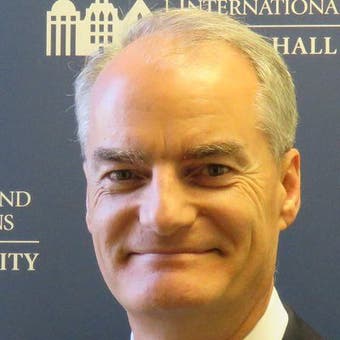Fox News Flash top headlines for May 3
Fox News Flash top headlines are here. Check out what's clicking on Foxnews.com.
The United Nations secretary-general post is up for grabs this year. If the United States, as a major steward and stakeholder, wants to improve U.N. performance, the Biden administration must work right away to develop options for this key leadership post, or a weary status quo will prevail.
Other than the current secretary-general, Antonio Guterres, no other senior figures are in the mix, probably preferring to be recruited discretely. Without recruitment by the U.S. and others, there will be no choice. Without that rigor, how could we expect rigor in the work ethic of the people pledged to support the priorities and mandates of the U.N. membership over matters of peace and security, development and human rights?
If the Biden team decides to invest itself in the future management of the United Nations, it has a key chore. Instead of continuing to inappropriately embolden the secretary-general as the world’s moral lodestone, the administration needs to prioritize candidates embodying a more effective and efficient work ethic throughout the U.N.’s byzantine bureaucracy. Without such reform-mindedness from the top, the U.N. risks 21st-century irrelevance.
Neither a potentate nor a saint, the "SG" is defined as the chief administrative officer of the organization. As secretary, his or her direct report is a Babylon of nearly 200 presidents, kings and despots. As general, he or she must manage a staff of thousands and budgets of several billions (of which the U.S. alone provides at least 25%).
REPUBLICANS PUSH BACK AGAINST BIDEN MOVES TO FUND CONTROVERSIAL UN PALESTINIAN REFUGEE AGENCY
What to do now? Apart from evaluating Guterres for continued service, the United States must ignite other member states to scour the field, to develop choices for energizing U.N. potential yet to be developed upon last year's 75th anniversary. The Biden administration must float some possible candidates, discretely intrigue viable ones, and directly target its strongest preferences.
Making the case over an incumbent in the mix would require a strong match with today’s priorities and should include powerhouse women candidates for the post, which had been the expectation when Guterres’ took over. German Chancellor Angela Merkel, soon available, comes to mind.
CLICK HERE TO GET THE OPINION NEWSLETTER
The 2016 selection of Guterres broke with custom. Before that, U.N. member states selected their secretary-general every five years in secret. But members decided to clear the smoke from the proverbial smoke-filled room. Public interviews and media campaigns indeed took place.
To honor that democratizing impulse, the Biden administration needs to maintain and publicize a rigorous process, because China and Russia will not. Otherwise, a quiet rubberstamp of Guterres would be the default of a White House unwilling to go toe to toe with these adversaries, both thriving under the status quo.
And what is that status quo at the U.N.? It has evolved into a long-term-care facility for festering conflicts, big on outputs, small on outcomes. A platform for tyrants’ virtue signaling while jackbooting human rights. And now becoming an incubator for authoritarian ambitions. Beijing, for example, is slowly subverting the U.N. brand and subcontracting U.N. resources to build out China’s massive Belt and Road program.
It is easy to understand why critics see the U.N. as a jobs program for the bureaucratic elite. The next secretary-general must refocus away from mere outputs to needed outcomes.
CLICK HERE TO GET THE FOX NEWS APP
Most regrettably, the U.N. has been missing in action symbolically this past year. It did not arise as a beacon of hope in the news or around the dinner table during the pandemic. Our virus-eclipsed globe, desperate for a dependable horizon and compass for direction, was not so obliged by the United Nations.
It is not too late for an enlightened secretary-general to muster the idealized image of the U.N. for such challenging, troubled times – and to put it to work each day.










































